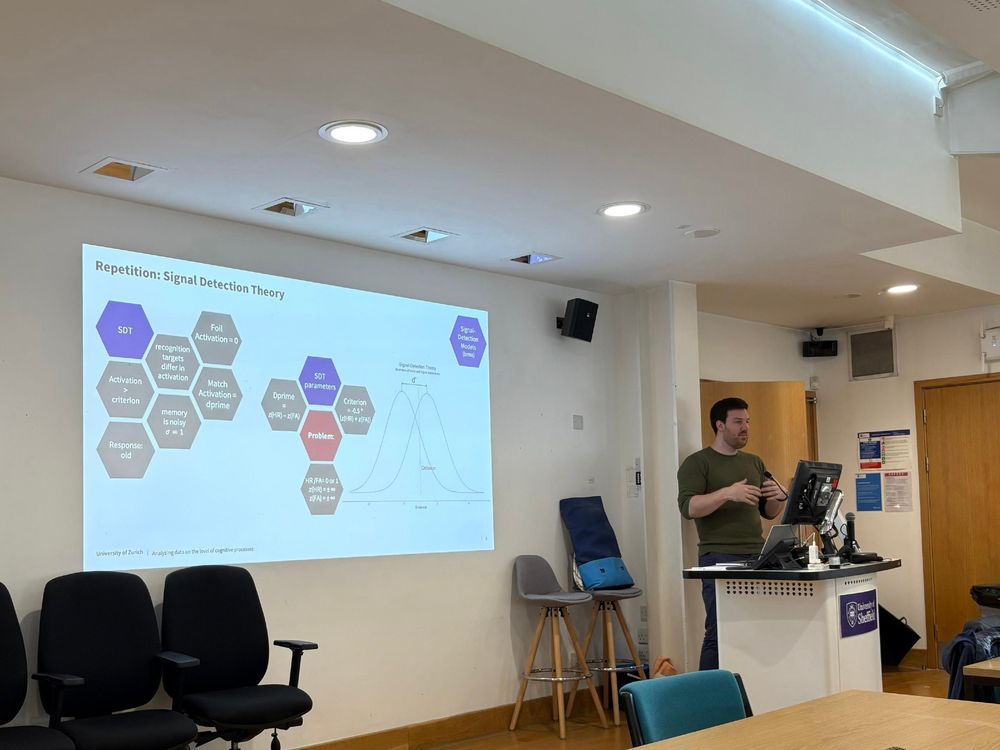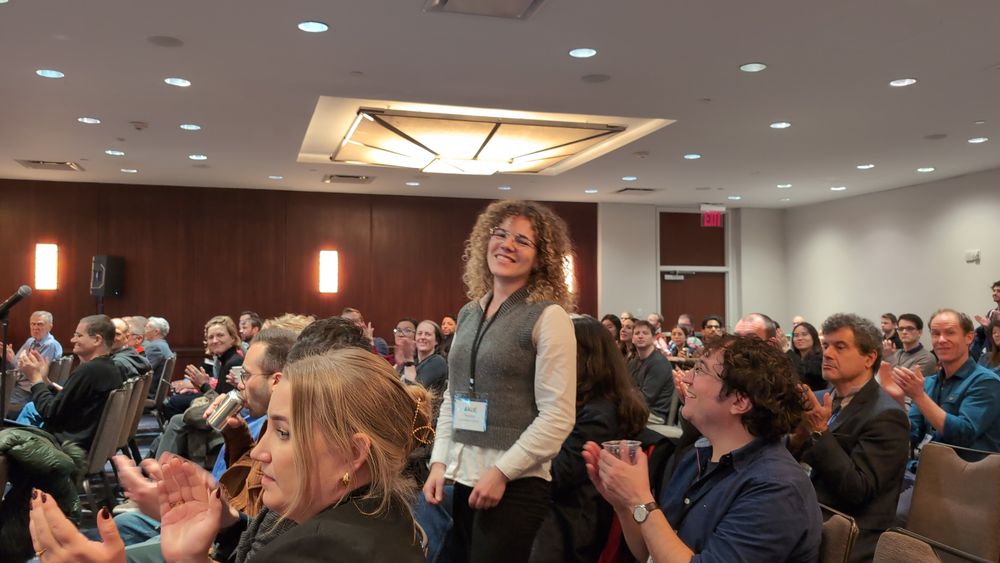Check out this research lead by Olivia Fischer and @renatofrey.mstdn.science.ap.brid.gy with cool insights into risky choices people face in real life!
03.03.2026 16:07 — 👍 5 🔁 1 💬 0 📌 0Check out this research lead by Olivia Fischer and @renatofrey.mstdn.science.ap.brid.gy with cool insights into risky choices people face in real life!
03.03.2026 16:07 — 👍 5 🔁 1 💬 0 📌 0@sjdm-tweets.bsky.social
03.03.2026 16:04 — 👍 0 🔁 0 💬 0 📌 0
My first PhD paper is out 🎉🐣
We examined transactions between Big Five traits and first sexual intercourse across up to 10 years and ~5,000 German adolescents.
Extraversion stood out 🔄🧠
Agreeableness + openness showed interesting patterns as well
Check them out here:
doi.org/10.1177/0890...
Excited to share a new preprint with @bnbakker.bsky.social, @ylelkes.bsky.social & @gijsschumacher.bsky.social!
doi.org/10.31234/osf...
Affective polarization research focuses almost exclusively on valence, despite affect having at least two core dimensions. We show that emotional arousal matters!
🚨New paper altert🚨
As a synthesis of my PhD research, we revisited the prevailing assumption about the mechanisms underlying repetition learning, and re-evaluated these assumption in light of recent findings.
Now out in Perspectives on Psychological Science:
doi.org/10.1177/1745...
Very excited to share our preprint (in press at Psychological Science) titled
"Associations between meat consumption and depression are small and unlikely to be causal". Have a read: lnkd.in/eM8Cd6Ss
@mdkraemer.bsky.social @peterhaehner.bsky.social @wiebkeb.bsky.social @chopwood.bsky.social

article cover page and abstract
New article in Cognitive Psychology with @thorstenpachur.bsky.social and Veronika Zilker: “How sampling strategies shape experience-based risky choice.”
We present a computational framework for information search and choice in decisions from experience. 1/4
doi.org/10.1016/j.co...
The first preprint from the SHARE study is out! 🥳 We compared the effects of three different incentives (a bulk payment, a bulk payment with personalized feedback, and payment per beep) on data quantity, data quality, and participant experiences in a student sample.
03.12.2025 08:03 — 👍 40 🔁 8 💬 2 📌 2
We built the openESM database:
▶️60 openly available experience sampling datasets (16K+ participants, 740K+ obs.) in one place
▶️Harmonized (meta-)data, fully open-source software
▶️Filter & search all data, simply download via R/Python
Find out more:
🌐 openesmdata.org
📝 doi.org/10.31234/osf...
🚨 New preprint: What does the research landscape of behavioral reinforcement learning look like 🌍?
We developed an LLM-powered bibliometric analysis to characterize article clusters, investigate their connections, and examine the distribution of topics across the landscape.
osf.io/6c2va_v1
#StrangersInTheDark Across five studies we looked at whether people assume strangers have similar levels of #DarkFactor. Plus we looked at some interesting moderators #sex #attraction. Check it out in #JDM.
doi.org/10.1017/jdm....
#AssumedSimilarity #PersonPerception #Personality

These days, everyone is talking about #polarization. But how best to measure it? Olivia Fischer and I have a new paper that empirically compares various operationalizations of polarization (e.g., on people's risk perceptions), including a shiny app to simulate […]
[Original post on mstdn.science]
For all who use Bayesian hierarchical models, have a look at our new preprint, out now together with @linushof.bsky.social @nunobusch.bsky.social and @thorstenpachur.bsky.social
osf.io/preprints/ps...



A huge thanks to all participants, my fellow workshop co-organizers @gidon-frischkorn.bsky.social and @ruhibhanap.bsky.social, and #ESCOP2025 for hosting our workshop introducing cognitive measurement models with the #bmm R package (venpopov.github.io/bmm/) - it was such a rewarding experience!
12.09.2025 09:57 — 👍 24 🔁 5 💬 0 📌 2Great news Jakob, congrats!!🎉
07.05.2025 18:47 — 👍 2 🔁 0 💬 0 📌 0
1/7
First paper of my dissertation now out in EJPR with @bnbakker.bsky.social & @gijsschumacher.bsky.social
Can we measure affective polarization in systems with 6, 10, or even more parties without overburdening respondents or compromising validity? We show how.
Paper: doi.org/10.1111/1475...

New preprint out on the link between gratitude and wellbeing: who benefits most and under what circumstances?
Across four studies with 220,314 individuals from 67 countries, we investigated whether individual, contextual, or cultural differences moderated this relationship.
osf.io/preprints/ps...
That’s amazing Milla, congrats🎉🎉
20.03.2025 17:31 — 👍 1 🔁 0 💬 0 📌 0
The first preprint from my PhD is out: osf.io/preprints/ps...! 🥳
We explored the temporal dynamics of four careless responding indicators (response time, within-beep standard deviation, an inconsistency index, occasion-person correlation) in ESM data across different samples.
Thread below🧵

🥁 Exciting news: Our new article on repeated risky choices is out now! How do children and adults make repeated choices when they learn about probabilities from description (i.e., graphical representation)? Not as expected! 👀
Full text: mpib.berlin/PUMtN
1/n

Congratulations to Maué Pantoja (https://cbdr-lab.net/pantoja/) for the 2nd place of the student poster award (Society for Judgment & Decision Making #SJDM / New York) 🚀🚀 🚀 #CBDR
25.11.2024 18:55 — 👍 4 🔁 2 💬 0 📌 0Make sure to check out our preprint to learn more: doi.org/10.31234/osf...
25.11.2024 15:14 — 👍 0 🔁 0 💬 0 📌 0
Olivia presenting at #psynom24
Exciting news from cbdr-lab.net: Olivia Fischer presented her recent project aimed at better understanding to what extent the risky choices behavioral scientists study reflect the choices people actually make in real life - and if not, to what extent it matters.
#psynom2024 @sjdm-tweets.bsky.social
Great idea, would you mind adding me to the list?
16.10.2024 14:30 — 👍 1 🔁 0 💬 1 📌 0@vlott.bsky.social unfortunately not.
13.09.2024 15:03 — 👍 0 🔁 0 💬 0 📌 0
EJ and František explaining the findings on stage of the 2024 Ig Nobel Prize Ceremony. František has a large coin to demonstrate the physics behind the effect.
We won the IgNobel Prize in Probability for 350,757 coin flips.
František Bartoš and EJ Wagenmakers received the prize yesterday on behalf the 50-author team.
Fair coins tend to land on the same side they started on (probability = 50.8%).
🧪 #StatsSky #PsychSciSky
More info below. 👇